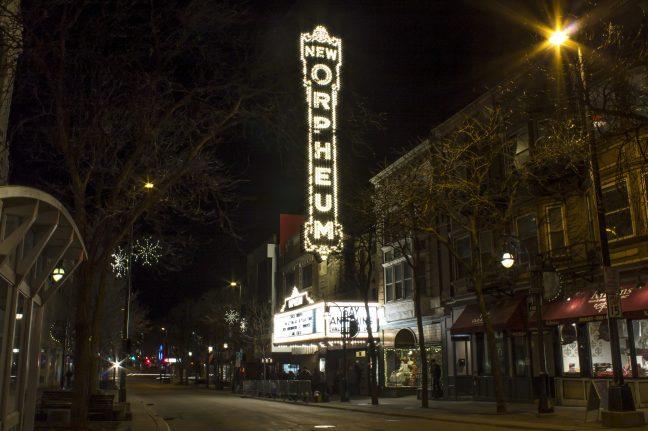If not for the persistent trumpeting of the Neptunes' Pharrell Williams, Clipse may never have arrived.
Formed in 1992, the Virginia-based duo, consisting of Thorton brothers Pusha and Malice, languished throughout the '90s and remained virtually anonymous until Williams convinced Arista Records to release their full-length debut album, Lord Willin', in 2002. With high anticipation for a follow-up, record mergers and legal snafus delayed its release for almost three years. The wait is now over and clearly has been worth the anguish.
Hell Hath No Fury is a smash rap record. It admirably avoids various strands of the current rap scene's defining motif. With a running length of slightly less than 50 minutes, it should be viewed as a paragon of economy and restraint compared to typical rap releases, like Diddy's Press Play and Snoop's The Blue Carpet Treatment, which often extend beyond the 80-minute mark. It forgoes the commonly heavy-handed, ostentatious production schemes of artists like Ludacris and Young Jeezy in favor of more spare but nuanced beats.
This offering is awash in dark, shadowy and skittish flows that permit jolts of exotic flair, but never stake their vitality on such excess. Like Nas' classic debut, Illmatic, Clipse and vaunted producers, the Neptunes, use Hell Hath No Fury to experiment with stripped arrangements and locate the echoes and clicks that lurk in dark corners. At times the process might smack of icy, detached efficiency. In actuality, it's a thrilling head-trip of superb rap craftsmanship, placing Hell Hath No Fury among the foremost end of the year's releases.
Its sterling consistency is front-to-back. There are no badly rendered entries here, just some that are harder to penetrate. The intro number, "We Got It for Cheap," establishes a viable, even if imperfect, template for this enterprise. It's perfectly inhibited, with only smooth organ bleeps and hand drums comprising the backdrop. This semi-vacancy accentuates the lucidity of Pusha's centerpiece vocals. They are unapologetic and supremely confident, making lyrical street swagger an essential element of Hell Hath No Fury.
The great march continues unabated in the follow-up, "Momma I'm So Sorry" (It seems their mother is the only one capable of stirring up humility in them). The tone of its beats darken considerably here as the swervy, noirish flow chills into calculated repetition. Over it, Pusha spits scattered musings on Miami Vice-like "cocaine dreamers" and his own detachment from the divine — "Heavenly father, once again I hate to bother." The production work merges ideal measures of sheen and grit, ably straddling the dividing line between the stylized core of hip-hop and the messier tendencies of rap.
The remarkable "Mr. Me Too" even more defiantly rejects these problematic classifications with its near shades of experimental electronica. Here Clipse's wizard ear for dispassionate yet engaging beats is brightly evident. Underwater, fuzzed-out dials plod and crawl in this deliciously offbeat scheme, making for a rhythm that is not instantly penetrable. But further listens will reward patience, as the vocal pattern meshes to create an even whole.
Hell's penchant for more skewed, sinister production does, at moments, give way to patterns that approach, but perhaps never arrive at, pop accessibility. "Dirty Money" infectiously slides to the jabs of piercing electrics even as broken drum punches inject a fit of chaos into the fray. Despite these sound oddities, the thuggish hearts of Clipse's duo firmly keep their attention on conventional rap fare: "Damn dirty money know how to keep the bitches."
Pusha dominantly handles the lead vocal duties. His delivery approximates the nasal charm of Mase, but still overflows with the chilled stoicism of a street banger. On "Keys Open Doors," he rightfully disavows all pretensions of an exemplary life. Whether he's "doing deals like the majors" or lauding his station in life — "I'm young, black, and I just don't give a fuck" — Pusha adheres to the street realism which seems to have defined his youth in Virginia Beach, Va. Dark and gritty, it also betrays a sense of his thrill for such an existence.
This consistent tenor comes strangely undone with the closer "Nightmares," an abrupt diversion into elegant R&B. Even with Hell's thematic content intact, it sheds all traces of hood tenacity as it revels in soulful, lulling vibes. Pusha recalls dealing "hard white" but then travels on dream-like tangents where he's "the Deerhunter" and "the Fonzy." It's an odd note to conclude on for an album so strident in its hustler throttle.
Appropriately, this is a work subsumed in stirring oddities. With spare, quirky production work that thrives off dusky moods, Hell Hath No Fury is strikingly artful rap that never relents in challenging convention and thrilling with its intense follow-through.
Grade: 4 out of 5.














